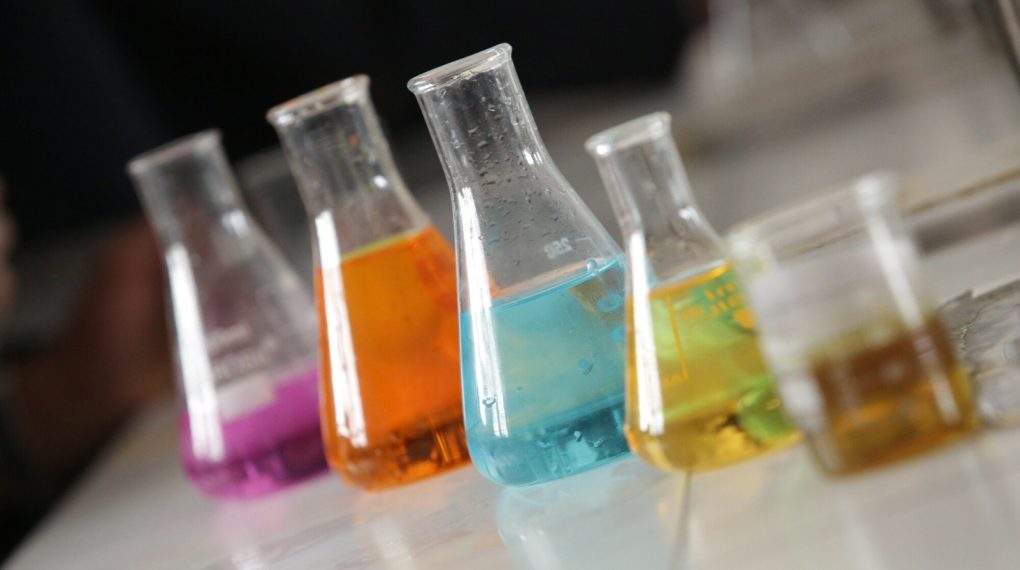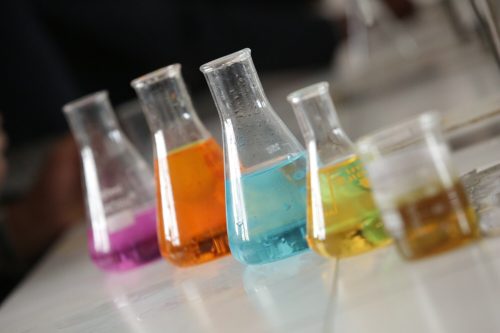Is General Chemistry Hard? Strategies to Make It Easier
If you’re taking general chemistry and finding it difficult, the reasons could be the heavy dose of math, the new lingo, and the foreboding reputation. Understanding chemistry means getting knee-deep in algebra, calculus, geometry, and other mathematics disciplines. You also need to learn and master a new vocabulary, and chemistry carries the reputation of difficulty.

Is general chemistry hard? Yes, but the challenge is manageable. There are things you can do not only to pass your general chemistry course but also to do well…and maybe even enjoy it. Keep reading to learn how to make studying general chemistry easier.
Space Things Out
While it might seem like a good idea to spend hours at the table cramming over your chemistry books, that strategy can be counterproductive. If you want to learn general chemistry, pace yourself by focusing on a few concepts at a time. You might get more benefit out of spending an hour daily working over a few chemistry problems than attempting to work out a ton of chemistry problems over multi-hour sessions.
Don’t burn yourself out by trying to do too much. Spending a lot of time on a few things per session will help you focus on the general chemistry problems you’re working on. You’ll see things with greater clarity.
You can also learn about: PMP Certificate in Lighting Your Dream Project
Prepare Ahead of Classes
Another way to gain traction in general chemistry is to study ahead of lectures. If you comb over assigned readings before the professor or instructor lectures, you’ll be better able to follow what’s going on.
Doing this is especially essential if you’re struggling to learn chemistry. Spending time to look at the assigned readings and jotting down questions you want to ask will help you learn more and do better in your course.
Take Detailed Notes During Lectures
You’ll be better prepared to study if you pay attention during lectures and take good notes. Spending time on the class readings and taking notes during the lectures will make your study time more impactful.
Don’t try to get everything down word for word. What you should focus on is capturing the lecturer’s main points. You can always go back later and put some meat on the proverbial bones.
Rework Study Notes After Lectures
After making notes during lectures, the next step is to read over them carefully to make them as complete as possible. For instance, you might want to rearrange information into sections to make studying easier.
This will be easy if you take notes on a tablet computer, but you can do it via pen and paper as long as you’re willing to re-write your notes. It’ll be worth the effort since the reworked notes will be essential study materials.
If you quickly made diagrams during class, you can re-do them so that they more clearly convey the intended information. Another way you can rework your notes is to supplement them with information you get from your general chemistry textbooks. By the time you’ve reworked your study notes, you’ll be able to make study time more effective.
If you’re working toward taking the Dental Admission Test, you know that general chemistry is one of the areas the test will cover. Reworking your notes post-lectures will get you ready for the difficult DAT test.
You can purchase a DAT book here to be prepared for the extensive examination.
Spend Time Working on Problems
When you study chemistry, spend time working on problems. You need to go over them thoroughly so that you could potentially tutor a fellow student who is struggling with those very same problems.
If you’re stuck on any general chemistry problems, ask someone with the skillset for help. That can be an instructor, a fellow student, or someone else.
One thing to keep in mind is that you’re likely missing an essential step if you’re struggling to come up with the answer to a problem. So, be methodological and systematic when working on general chemistry homework.
Start or Join a Study Group
Have you ever heard the saying that iron sharpens iron? It’s true that you can become better at general chemistry if you study with other like-minded individuals. So, start a study group or join one that’s already in progress. You can all learn from each other and develop good chemistry study skills. Working together will make it easier to solve general chemistry problems. If you’re weak in one area, you can pick the brains of the other group members. Keep the study group small for the best results. You probably shouldn’t exceed four or five people.
Speak With Your Lecturer
While there’s value in asking questions during class lectures, you can get more help if you make appointments to see your professor or instructor. That’ll provide the perfect opportunity to ask specific questions. If there are concepts introduced during the lectures that you’re having trouble grasping, an appointment with the instructor is the perfect opportunity to ask for help. You can get answers to all those chemistry problems nagging at you. It’s the perfect way to increase your knowledge about general chemistry and get the help you need to succeed in the course.
Don’t Fall Behind on Readings
One of the best ways to get frustrated in your general chemistry course is to fall behind on the course readings. General history can be hard enough. You don’t have to make things more difficult by having to play catch up. One of the worst things you can do is wait until tests or exams to catch up with course readings. You’ll regret procrastinating if you face this sort of scenario.
Is General Chemistry Hard? Yes, but It’s Doable!
General chemistry is a course that scares many students for various reasons. So, if you’re pondering: is general chemistry hard? The answer is, “yes.” That said, there are things you can do to make a general chemistry course manageable. You might actually find yourself liking it once you put into practice some of the suggestions mentioned above. Are you interested in reading more articles about topics like career opportunities, technology, and fashion? Check out more content on our site.






